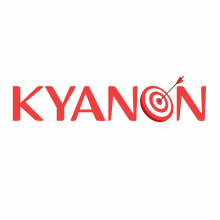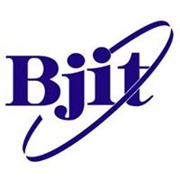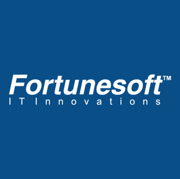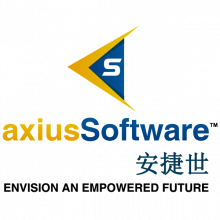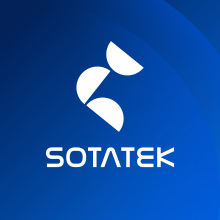
There are 65 Companies in Singapore
that provide Angular Development Services!
The Singapore ICT sector is a key player in the entire economical system, as it interacts and enhances all other industries. The ICT industry transformed many other important sectors of the economy, like finance, services, and manufacturing, and made them even more competitive in the global market.
Discover Top IT Companies in Singapore specialized in Angular and other related services. Find the best IT service providers for your projects.
Angular (formerly AngularJS) is a popular open-source web application framework maintained by Google and a community of developers. It's used for building dynamic, single-page web applications (SPAs) and web-based applications in general. Angular provides a structured and organized way to create complex web applications by extending HTML with additional features and enabling the development of interactive, responsive, and maintainable front-end web interfaces.
Handpicked companies • No obligation to hire • 100% risk-free
Featured Companies in Singapore
This month, the following Angular Development companies managed to provide an outstanding service and support. It's worth taking a look.
Unlock Rapid Innovation in Design & Tech: AI-Powered Efficiency (2x), Transparent Costs, Limitless Customization!
Mobirevo is a Leading custom software development agency focused on web, mobile app development & saas application development.
Explore Top Angular Development Companies in Singapore
Techgropse is a leading Mobile App and Web Development Company, dedicated to turning innovative ideas into remarkable digital solutions. 500+ Clients
Kuchoriya Techsoft—Mobile app, web, and custom software development company helping businesses with scalable digital transformation solutions.
Digital Marketing Agency in Chennai, India
Services:

OnGraph Technologies Corporation Verified Company
International Plaza, Singapore Head office in: India
Web and Mobile App Development Company Powered by AI/ML Solutions.
Golden Owl Consulting is one of the most prominent agile software outsourcing firms
Industry-Specific, Ready To Deploy Software Solutions That Drive Results
axiusSoftware is an Award Winning, ISO 9001 & 27001 certified Software Development & Digital Consulting company operating for more than 10 years.
Developed App of the Year with 50m+ Downloads
Combining Design Excellence with Performance
Services:
We build MVPs, SaaS, and custom software — fast, clear, senior-led, and ready to scale.
Filter Angular Development Companies in Singapore by Cities
Find the right tech company near you or from a specific city. Some of the best companies might be located in smaller cities.
Find more Angular Development companies around the world
TechBehemoths is the world's most advanced and user-friendly platform to match IT Companies with real clients without hustle.
The ICT Industry in Singapore: Latest Data and General Profile
The Singapore ICT sector is a key player in the entire economic system, as it interacts and enhances all other industries. The ICT industry transformed many other important sectors of the economy, like finance, services, and manufacturing, and made them even more competitive in the global market.
As an information and technology hub in the Asia Pacific, Singapore is a regional base for most of the world’s top IT multinationals, including Microsoft, Oracle, Amazon Web Services, Google, as well as international technology startup companies.
According to Statista, the Singapore IT Services market value in 2025 reached $13.21 billion, which makes it one of the fastest-growing economies in the world. On the other hand, a study from Glassdoor reveals that the average salary in the IT sector is around $3,000 - $5,000 monthly, which is comparable to Germany.
Why You Should Work With Singapore-based IT Companies
Singapore-based IT companies provide the entire spectrum of services both for the domestic and global markets for more than a decade, which makes them some of the most experienced companies with a good business tradition and a top reputation.
Additionally, IT companies from Singapore are also known for discipline and transparency in doing business. A 2025 report from Transparency International reveals that Singapore ranks #3 in the world’s top in business transparency out of 180 countries.
What You Should Be Aware of When Working With Singapore Companies
As a top destination for businesses and one of the largest IT hubs in Asia, the Singapore IT market faces challenges with the presence of a high number of tech startups in terms of professionalism and credibility. In 2024, a number of over 31,000 companies were registered in the ICT sector in Singapore, making it difficult for potential clients to identify the most suitable for their web projects. As most of the companies claim to be originally from Singapore and ask the same high price for their services, not all can provide the high-end quality of their web products and services.
How Reliable Are Singapore-based IT Companies
The high level of development of IT infrastructure and the amazing business environment in Singapore created the perfect chance for many foreign IT companies to simulate the business process, making it a potential risk for clients. However, Singapore IT companies enjoy a high credibility rate on the global market in providing all types of services related to the field.
How Does the Singapore IT Industry Relate to the Neighboring Countries?
In the background of a fast-developing region in the IT field, Singapore is considered a leader in developing digital solutions. The great business environment and IT infrastructure allow Singapore to compete with Indonesian professionals and be a good alternative IT destination to the Philippines, Vietnam & Brunei, due to the highly digitalized economy and good business relations with almost all countries.
What is Angular and what are its benefits for your projects?
Angular (formerly AngularJS) is a popular open-source web application framework maintained by Google and a community of developers. It's used for building dynamic, single-page web applications (SPAs) and web-based applications in general. Angular provides a structured and organized way to create complex web applications by extending HTML with additional features and enabling the development of interactive, responsive, and maintainable front-end web interfaces. Here are some key aspects and concepts of Angular:
-
Component-Based Architecture
-
Templates
-
Directives
-
Dependency Injection
-
Services
-
Routing
-
Observable and RxJS
-
Modules
-
Testing
-
Cross-Platform
Angular's structured approach, strong tooling, and vibrant ecosystem of libraries and extensions make it a powerful framework for building modern web applications. It is particularly well-suited for large and complex projects where maintainability and scalability are crucial.
Companies may choose Angular over other front-end frameworks for their projects for a variety of reasons, depending on their specific needs and priorities.
-
Google Backing: Angular is developed and maintained by Google. This association often gives companies confidence in its long-term support, stability, and continuous improvement. Google's involvement is seen as a sign of reliability and commitment to the framework.
-
Mature and Established: Angular has been around for a while and has a strong track record of being used successfully in large-scale enterprise projects. It has a well-defined architecture and best practices, which can be beneficial for maintaining and scaling applications over time.
-
TypeScript Support: Angular is built with TypeScript, a statically-typed superset of JavaScript. TypeScript provides better tooling, code maintainability, and catches errors at compile time, which can reduce bugs and enhance code quality, making it attractive to companies that prioritize robust code.
-
Full-Featured Framework: Angular provides a comprehensive set of tools, libraries, and features out of the box, including routing, form handling, HTTP client, and more. This can save development time and effort compared to integrating multiple third-party libraries in other frameworks.
-
Two-Way Data Binding: Angular offers powerful two-way data binding, which allows for automatic synchronization between the data model and the view. This feature can make it easier to develop interactive and responsive user interfaces.
-
Large and Active Community: Angular has a large and active community of developers and a wealth of resources, including documentation, tutorials, and third-party libraries. This can be beneficial for finding solutions to common problems and getting support when needed.
-
Enterprise-Ready: Angular provides features like dependency injection, modularity through modules, and a strong emphasis on testability. These characteristics are well-suited for building robust and maintainable enterprise-level applications.
-
Strict Coding Standards: Angular enforces a set of coding standards and best practices, which can lead to more consistent and readable code. This can be important for companies with multiple developers working on the same codebase.
-
Cross-Platform Development: Angular can be used for building both web and mobile applications. Companies looking to develop applications for multiple platforms may choose Angular for its ability to share code between web and mobile apps using technologies like NativeScript or Ionic.
-
Integration with Backend Technologies: Angular can easily integrate with various backend technologies and APIs. This makes it suitable for projects where the front end needs to communicate with different types of server-side applications.
-
Security Features: Angular provides built-in security mechanisms to help prevent common web vulnerabilities like Cross-Site Scripting (XSS) and Cross-Site Request Forgery (CSRF). This can be crucial for projects with high security requirements.
-
Ecosystem and Tooling: Angular has a rich ecosystem of tools, extensions, and IDE support, including Angular CLI for project setup and management. This can streamline development workflows and improve productivity.
Ultimately, the choice of Angular or any other framework depends on the specific project requirements, the development team's expertise, and the company's long-term goals. Companies evaluate various factors to determine which framework aligns best with their needs, resources, and priorities.






